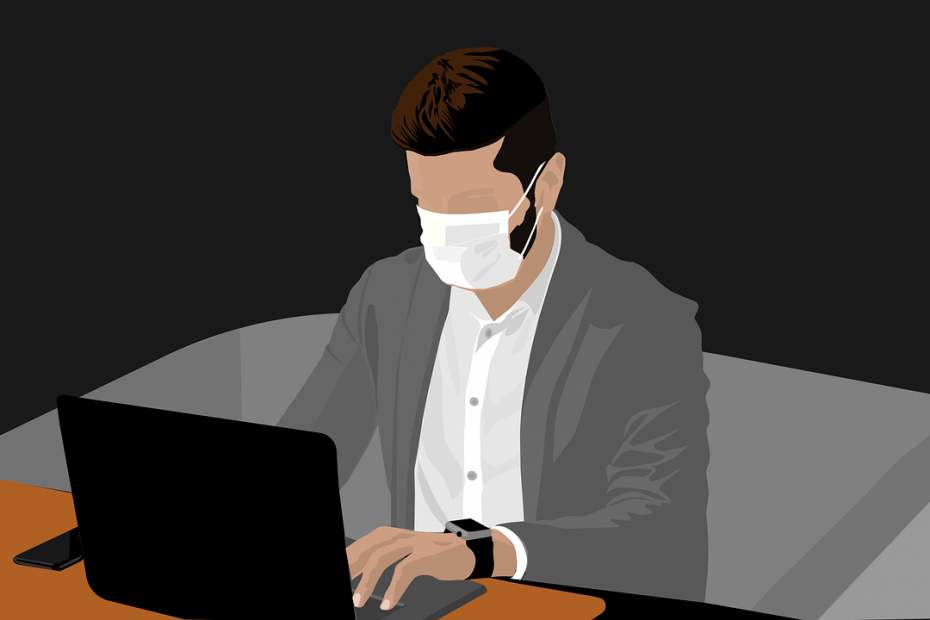I’m writing this first NAPLE blog piece from the comfort of my home desk. I’ve spent most of the last two years working at home, as many of us have, trying to stay on top of the COVID-19 pandemic and all of its effects on the public library sector in Ireland. Not for much longer though! At the time of writing Ireland is beginning to ‘open up’ once more and trying to find out what the country looks like after an enforced period of restrictions on our daily lives. The library sector is doing the same thing too, taking a look around and wondering what happened – and what happens next.
NAPLE members will know only too well what has happened to our libraries in the past two years. We’ve all been through different versions of the same thing: closures of library buildings, switches to digital-only services, some restoration of physical services as the pandemic temporarily recedes, then more closures as cases go up and we retreat. Then the same thing happens again. Rinse and repeat. It’s been a long two years.
But now, in Ireland at least, and in many NAPLE countries as well, it does look like we are beginning to turn the tide and a return to ‘normal’ is finally on the cards. Right now all of our buildings are open to the public once more and nearly all services, save for the out of hours My Open Library service, are back online. Users still have to wear masks when visiting a library until the end of February, but otherwise restrictions have all been removed. Staff are back in the office across the country, after battling back from high COVID infection rates that hit the country in January. Positions in the service that we were unable to fill during the pandemic are being advertised and filled and, looking around, we’re beginning to wonder about what our new national public library strategy for the period 2023-2027 is going to look like. What is it going to take to lead the service into the future, what skills do we need, what resources?

Of course, in NAPLE, and in EBLIDA, in Public Libraries 2030 and indeed all over the world librarians have been talking about this moment for most of the pandemic! Post-COVID is a term that we started using almost as soon as the virus hit and now we get to find out what it means. But almost immediately here in Ireland we are getting hit with some hard truths. Prolonged periods of lockdown saw our registered membership, which remained relatively steady in 2020 due to automatic renewal, shrink by more than 50% in 2021. Our active members – those who actually used their library card to access a service – fell by nearly 20%. Visits to libraries fell by 70% 2019 to 2020, and we don’t expect the 2021 figures to show much improvement.
We know from other NAPLE members that the same thing has happened across Europe. And while there is some solace in the situation affecting not just libraries, but churches, gyms, doctor’s surgeries and many other institutions, the fact is that we are contemplating the post-COVID world from a far lower vantage point that at the start of 2020. It’s unsettling, and makes people nervous.
Or, if you tilt your head just right, it could be invigorating. During the past two years in Ireland our libraries have proved, time and time again, that they are an essential service that users – and the government – can rely upon when the going gets tough to keep delivering. Our reputation here in Ireland might never have been higher. The swift pivot to digital worked. Our physical visits dropped, but people stayed in touch and used our digital services and attended our digital events in greater numbers than ever before. We ran two massive national campaigns, one on reading and another on growing your own food (libraries as seed banks!), that reached tens of thousands of people during the long winter of 2020. We had two years of upskilling our staff as we learned to be Teams power users and rolled out training programmes on a scale that we’d never been able to achieve prior to COVID.
If we are in a low place, then, I believe we are equipped to go higher. There are users to be enticed back into buildings in the heart of their communities. There are mobiles to be gotten back on the roads. There are fairer eBook frameworks to build so that we can deliver the sorts of eLending services that our users deserve (and our budgets can carry). There’s the spectre of digital exclusion in plain sight, revealed by the pandemic, and a clear role for us to deliver digital skills and information literacy training to combat it.

Furthermore, there is a post-COVID policy train about to leave the station here in Ireland, and we are well positioned to get on it. In the past 12 months we have seen a new national rural regeneration policy, a new Remote Working Strategy, a Climate Action Plan, and in the last two weeks a new Town-Center First Policy, and a new national Digital Ireland Framework. These policies are going to be shaping the environment for a post-pandemic Ireland and there is room for library services in all of them. Our own new strategy will see to that.
I’ve been writing about Ireland, but I am not just describing an Irish phenomenon. I hope that you can all see some parallels in your own country – all NAPLE members will be stepping out into a new world in 2022 and I hope we can continue to learn from each other in our regular online meetings, and even meet in person in Athens in June and at the IFLA WLIC in Dublin in July to discuss how we are solving our new challenges. The launch of this new NAPLE blog will also help, I hope, as every month we share some insights into the issues in front of us. As I wrote in so many emails to colleagues over the last two years: onwards!




